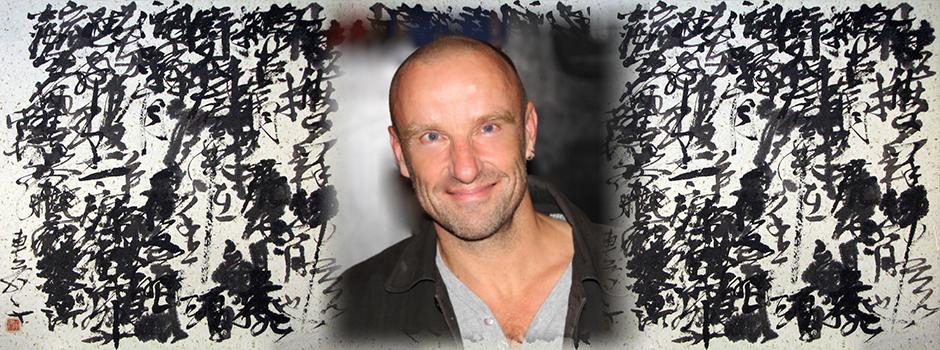What does translation have to do with train wrecks? If a translation goes wrong, it derails just like a train!
Professor Maghiel van Crevel used photos of trains, train tracks and a rail bridge to illustrate the word “translation” and its purpose of bridging between languages and cultures, during his talk on October 20 about translation and translatability of Chinese poetry.
Maghiel van Crevel, Professor of Chinese Language and Literature at Leiden University, and currently visiting professor at Beijing Normal University, translated contemporary Chinese poetry by notable Chinese poets such as Bei Dao and Duo Duo. As a translator, Maghiel offered many examples of the challenges in tackling both a language and the cultural implications of translation.
“What are you going to do about the fact that your language has a problem expressing the counterfactual, or that your language doesn’t have measure words. What are you going to do about translating a word like ‘sauna’ into Swahili?’’ Maghiel asked.
To underscore his point, he highlighted the challenge of translating into Dutch the Chinese sentence ”his heart is not made of wood either” to show the role culture plays in translation, and the ensuing predicament of the translator. As a Dutch, he knew he should translate it as “his heart is not made of stone either”. However, Maghiel explained that only if he translated the sentence literally would his Dutch readers come to understand that Chinese say wood where Dutch say stone.”
Maghiel’s key publications include Chinese Poetry in Times of Mind, Mayhem and Money. Its Chinese version will be published at the end of 2016 by Beijing University Press.
During the talk, Maghiel also elaborated further on the translatability of poetry more generally, and specifically Chinese poetry. He invited comments on whether anything can be translated at all. “For example, Chinese poetry is very easy to rhyme by using the ‘N’ syllable ‘Ang’. But a poem loses its rhyme if translated into, for example, French or German. If you think about that, poetry is the most untranslatable literary genre. ”
But Maghiel said it is precisely because of this that poetry is actually the genre that is the most enticing to translators. “Basically [poetry] challenges translators to tackle the impossible.”
David Perry, Language Lecturer in the Writing Program at NYU Shanghai introduced Maghiel’s work, and Lena Scheen, Assistant Professor of Global China Studies moderated the talk.
The talk is co-sponsored by the Literary Reading Series, which held its third event of the series on October 27 during which Korean poet Kim Ki-Taek and Chinese poet Han Bo read their poems. Lecturer Dan Keane introduced the poets and moderated the discussion.


